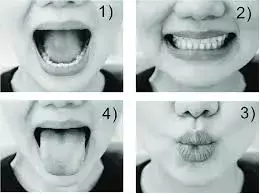- Home
- Medical news & Guidelines
- Anesthesiology
- Cardiology and CTVS
- Critical Care
- Dentistry
- Dermatology
- Diabetes and Endocrinology
- ENT
- Gastroenterology
- Medicine
- Nephrology
- Neurology
- Obstretics-Gynaecology
- Oncology
- Ophthalmology
- Orthopaedics
- Pediatrics-Neonatology
- Psychiatry
- Pulmonology
- Radiology
- Surgery
- Urology
- Laboratory Medicine
- Diet
- Nursing
- Paramedical
- Physiotherapy
- Health news
- Fact Check
- Bone Health Fact Check
- Brain Health Fact Check
- Cancer Related Fact Check
- Child Care Fact Check
- Dental and oral health fact check
- Diabetes and metabolic health fact check
- Diet and Nutrition Fact Check
- Eye and ENT Care Fact Check
- Fitness fact check
- Gut health fact check
- Heart health fact check
- Kidney health fact check
- Medical education fact check
- Men's health fact check
- Respiratory fact check
- Skin and hair care fact check
- Vaccine and Immunization fact check
- Women's health fact check
- AYUSH
- State News
- Andaman and Nicobar Islands
- Andhra Pradesh
- Arunachal Pradesh
- Assam
- Bihar
- Chandigarh
- Chattisgarh
- Dadra and Nagar Haveli
- Daman and Diu
- Delhi
- Goa
- Gujarat
- Haryana
- Himachal Pradesh
- Jammu & Kashmir
- Jharkhand
- Karnataka
- Kerala
- Ladakh
- Lakshadweep
- Madhya Pradesh
- Maharashtra
- Manipur
- Meghalaya
- Mizoram
- Nagaland
- Odisha
- Puducherry
- Punjab
- Rajasthan
- Sikkim
- Tamil Nadu
- Telangana
- Tripura
- Uttar Pradesh
- Uttrakhand
- West Bengal
- Medical Education
- Industry
Digital therapeutics may help improve pain and mouth opening in temporomandibular disorders: Study

Digital therapeutics may help improve pain and mouth opening in temporomandibular disorders suggests a study published in the Journal of Dentistry.
Temporomandibular disorder (TMD) is a common condition that affects the temporomandibular joint (TMJ) and the muscles of the jaw, resulting in pain and dysfunction. TMD is affected by both behavioral and psychological factors. Digital therapeutics (DTx) can exert therapeutic effects by controlling behavioral factors through the delivery of appropriate interventions. Here, we report an open-label randomized control trial to evaluate the efficacy of DTx for TMD. They recruited 40 participants diagnosed with TMD. Participants were randomly divided into an intervention group (DTx use, n = 20) and a control group (n = 20). The intervention group received the usual treatment process for TMD in addition to the use of the DTx. The control group received the usual treatments only. Patients in both groups were followed up for 3–4 weeks, and outcome data were collected and analyzed. Result: The intervention group showed a significant reduction in pain scores as measured by the numerical rating scale (NRS) (p = 0.016).
Additionally, the intervention group showed a statistically significant increase in maximal mouth opening compared to the control group (p = 0.0079). However, there were no significant differences in improvement in the Jaw Functional Limitation Scale, Oral Behavior Checklist, and Patient Health Questionnaire-4 between the two groups (p = 0503, = 0.820, and = 0.943, respectively). This RCT reveals DTx potential in TMD, showing pain and mouth opening improvements with conventional treatment. But no significant changes were noted in other outcomes. The findings advocate for more extensive, long-term research to solidify DTx's role in TMD management. This research underlines DTx potential to improve pain outcomes in TMD therapy, reinforcing its value as a complementary treatment modality.
Reference:
Sang-Yoon Park, Soo-Hwan Byun, Byoung-Eun Yang, Daehyun Kim, Bongju Kim, Jong-Ho Lee, Young-Kyun Kim. Randomized controlled trial of digital therapeutics for temporomandibular disorder: A pilot study. Journal of Dentistry, Volume 147, 2024,
105030, ISSN 0300-5712. https://doi.org/10.1016/j.jdent.2024.105030.
(https://www.sciencedirect.com/science/article/pii/S0300571224002008)
Dr. Shravani Dali has completed her BDS from Pravara institute of medical sciences, loni. Following which she extensively worked in the healthcare sector for 2+ years. She has been actively involved in writing blogs in field of health and wellness. Currently she is pursuing her Masters of public health-health administration from Tata institute of social sciences. She can be contacted at editorial@medicaldialogues.in.
Dr Kamal Kant Kohli-MBBS, DTCD- a chest specialist with more than 30 years of practice and a flair for writing clinical articles, Dr Kamal Kant Kohli joined Medical Dialogues as a Chief Editor of Medical News. Besides writing articles, as an editor, he proofreads and verifies all the medical content published on Medical Dialogues including those coming from journals, studies,medical conferences,guidelines etc. Email: drkohli@medicaldialogues.in. Contact no. 011-43720751


